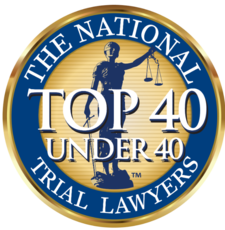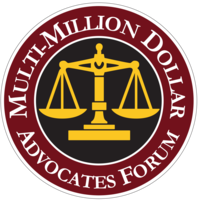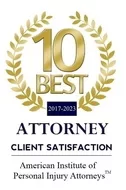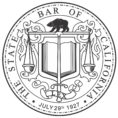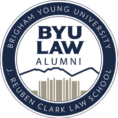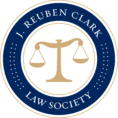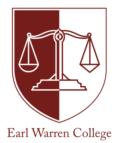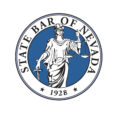Proving Negligence in Slip and Fall Cases: Why Legal Expertise Matters
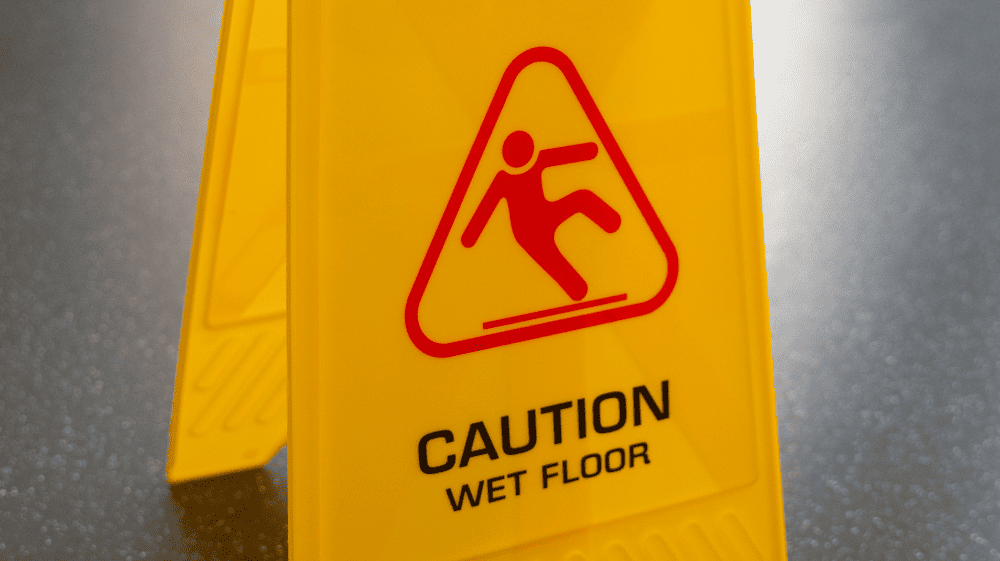
Over 6.9 million people in the US were treated in emergency rooms for fall-related injuries during one recent year. From grocery stores to your neighbor’s home, slip-and-fall accidents can happen when you least expect them. Although the actual incident happens in a split second, the effects of a slip and fall injury can last for months or even years.
A serious injury can keep you from working and prevent you from engaging in hobbies and activities you previously enjoyed. If you were injured in a slip-and-fall accident due to a property owner’s negligence, you may be entitled to compensation for your losses.
However, while these types of incidents may seem straightforward, proving negligence in slip-and-fall cases is often complex and challenging. This is why legal expertise is important. Having a qualified slip-and-fall accident lawyer on your side can make all the difference.
Identifying Who Can Be Liable for Slip-and-Fall Accidents
A slip and fall case is a type of premises liability claim. The legal doctrine of premises liability means that property owners are responsible for certain incidents that occur on their property.
Property owners are obligated to keep their premises in a reasonably safe condition. When property owners fail to do so, they can face liability for the damages incurred by the injured party.
A slip-and-fall attorney can help you to identify who is liable for your damages. Potentially liable parties may include one or more of the following.
Property owners
The most common parties held liable in slip and fall cases are property owners, which include:
- Residential property owners: Homeowners can be liable if someone slips and falls on their property due to unsafe conditions, such as a broken handrail or loose floorboards.
- Commercial property owners: Owners of stores, restaurants, and other businesses must ensure their premises are safe for customers and employees. Failure to address issues such as spills, poor lighting, or uneven flooring, can make them liable.
- Public property owners: Slip-and-falls on public properties, such as parks or sidewalks, can result in claims against local or state governments. Personal injury cases against government entities often have specific procedures and shorter deadlines, meaning legal assistance is essential.
Property managers
In some situations, property managers may be held liable instead of or in addition to the property owner. Property owners are responsible for the day-to-day upkeep and maintenance of the property.
If property owners fail to address known hazards or do not perform regular inspections and maintenance, they can be held accountable for resulting slip and fall injuries.
Tenants
Tenants who lease property for residential or commercial use could be liable for slip-and-falls, especially if the accident occurred within the area they control.
As an example, the owner of a boutique clothing store might be responsible for ensuring their store is free from known hazards, while the residential tenant living above the store might be liable if someone slips on a spill in the apartment.
Third-party contractors
Sometimes, third-party contractors such as maintenance or cleaning companies can be held accountable for slip-and-fall accidents. If a cleaning crew leaves a floor wet without proper signage or a maintenance worker fails to fix a known hazard, that party will be liable for resulting injuries.
Establishing Liability in Slip and Fall Cases
Several elements must be proven to hold a property owner or occupier liable for a slip-and-fall. Slip and fall lawyers know how to gather the information and evidence needed to establish each of the following elements.
Duty of care
The property owner must owe a duty of care to the injured party. This duty varies depending on the status of the visitor, described as follows:
- Invitees: People who are invited onto the property for business purposes such as customers in a store or patrons of a restaurant
- Licensees: Delivery workers, social guests, or others who are allowed onto the property for non-business reasons
- Trespassers: Those who enter without permission; generally, trespassers are owed the least duty of care, except in situations involving children
Breach of duty
For your slip and fall claim to be successful, you must show that the property owner breached his or her duty of care.
This can occur through:
- Failing to properly maintain the property
- Ignoring building codes or safety regulations
- Failing to address hazards within a reasonable time frame
Causation
Your lawyer will need to help you prove that the breach of duty directly caused your slip-and-fall accident. This involves establishing a clear link between the hazardous conditions and the injuries you sustained.
Damages
You must also demonstrate that you have suffered damages as a result of the slip-and-fall accident.
Recoverable damages in slip and fall cases may include compensation for:
- Medical expenses
- Lost wages
- Pain and suffering
Evidence to Support a Slip-and-Fall Accident Case
Gathering compelling evidence is essential to establishing liability in slip and fall negligence cases. Slip and fall attorneys know what evidence is needed to build a strong personal injury case for their clients.
Key evidence includes:
- Photos: Visual evidence of the hazardous condition and the accident scene can significantly strengthen a personal injury claim.
- Surveillance footage: Many businesses and private residences have security footage that may have recorded the incident. This footage can be instrumental in showing the fall and conditions leading up to it.
- Witness statements: Testimonies from individuals who saw the accident or were aware of the hazardous condition can corroborate your version of events.
- Employee statements: Employee testimonies about maintenance routines and their knowledge of the hazardous conditions can provide important evidence.
- Medical records: Detailed medical records that document the injuries sustained from the fall, medical treatments received, and long-term prognosis can connect the injuries directly to the accident.
- Expert witnesses: Medical professionals may be able to testify about the severity and cause of your injuries. Safety experts can provide information on whether the property met safety standards and if the hazard should have been addressed.
Common Defenses Used by Property Owners and How an Attorney Can Counter Them
If you have sustained serious injuries from a slip-and-fall accident due to property owner negligence, it is your right to pursue a personal injury claim. However, property owners have several defenses to counter these claims.
Understanding these defenses and the role a personal injury lawyer plays in navigating them is essential for anyone involved in a slip and fall case.
Lack of notice
Typically, to prove a property owner liable, the injured party must prove that the owner knew or should have known about the dangerous condition.
Property owners can argue that they were unaware of the hazardous conditions that caused the slip-and-fall. If the hazard was not easily detectable, the owner may use these as a defense to argue that there was not sufficient time to address the issue.
A slip-and-fall accident attorney can help collect evidence showing that the owner knew or should have known about the hazard. This might involve reviewing maintenance records or past complaints.
Open and obvious doctrine
Property owners can defend themselves by claiming that the hazardous condition was “open and obvious.” That means that a reasonable person would have noticed and avoided it. This defense can be especially effective if the hazard is easily visible and could have been bypassed with reasonable caution.
A lawyer may try to counter this defense by proving that the property condition was so treacherous that the plaintiff could not have possibly avoided it.
No causation
Property owners may try to argue that the hazardous condition did not cause your injuries. They may present evidence suggesting that your injury existed before the accident, your injury resulted from another unrelated incident, or that there is insufficient proof linking the slip-and-fall to your injuries.
Your personal injury attorney will work to establish a direct link between the hazardous condition and your injuries. Doing so may involve consulting expert witnesses such as medical professionals who can testify as to the extent and cause of your injuries.
Comparative negligence
In states like California that follow comparative negligence rules, the property owner may try to argue that the injured party was partially at fault for their injuries.
A property owner may claim that you were:
- Failing to pay attention to where you were walking
- Engaging in reckless behavior
- Ignoring visible warning signs
If the property owner argues that you were partially to blame for your slip-and-fall, your lawyer will try to refute this claim. This may involve demonstrating that you exercised reasonable care or that the hazardous condition was unavoidable.
Assumption of risk
The property owner may use the defense that you knowingly or voluntarily engaged in an activity that carried an inherent risk of injury. If the property owner can prove that you were aware of the risk and chose to proceed anyway, he or she might avoid liability.
Your slip-and-fall lawyer will try to collect evidence demonstrating that the area was not clearly marked as dangerous and that you were unaware of the existing hazards.
Evaluating the Value of Your Slip and Fall Claim
Determining the true value of your slip and fall claim involves more than just adding up your medical bills. Factors such as future medical expenses, lost earning capacity, pain and suffering, and emotional distress must also be considered.
An experienced personal injury lawyer can accurately calculate all of these damages, ensuring that you seek fair compensation that reflects the full extent of your losses.
Dealing With Insurance Companies Following a Slip-and-Fall Accident
When you are injured in a slip-and-fall accident, one of the most essential steps toward getting the compensation you deserve is negotiating with the insurance company.
It is important to remember that insurance companies are not on your side when you file a claim. Insurance companies are businesses driven by profit, and their goal is often to minimize payouts to protect their bottom line.
Effective negotiation with the insurance company requires skill and experience. Personal injury lawyers are skilled negotiators who know how to present evidence, build a strong case, and use their knowledge to advocate for the best possible settlement.
Contact a Slip-and-Fall Accident Lawyer Today
Proving that a property owner was negligent can be an overwhelming and complex task. Fortunately, the legal team at Harker Injury Law is here to help. We can review the details of your slip and fall case and determine whether you have the grounds to file a premises liability claim.
The members of our law firm have extensive experience in helping clients who have suffered serious slip and fall injuries. Our legal team can explain the laws that apply to your case and determine the best course of action to recover maximum compensation. We look forward to putting our experience and resources to work for you.
We take all personal injury cases on a contingency fee basis. This means you pay no upfront costs or fees for our services. What’s more, we offer free consultations to all slip and fall injury victims. Get started today. Complete the contact form to schedule your free case evaluation.
